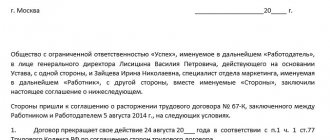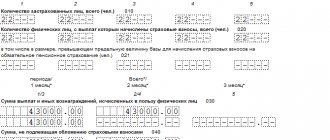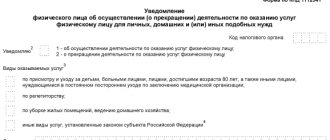What's happened
Back in 2020, the opinions of officials from the Federal Tax Service and the Ministry of Finance completely coincided with the decisions of the courts regarding the imposition of personal income tax and insurance coverage of the costs of medical examinations for employees.
Previously, officials believed that regardless of who paid these expenses, neither personal income tax nor insurance coverage needed to be charged on these amounts. In other words, if a company transferred money to a medical institution under an agreement or paid compensation in favor of its employees for a medical examination, then SV and personal income tax were not accrued. The amounts of payments were not recognized as economic benefits and (or) income of citizens, and therefore were exempt from taxation in full.
However, legislative changes in 2020 forced a different interpretation of the provisions of the Tax Code of the Russian Federation. Let us remind you that since 2020, the administration of insurance coverage for citizens has been transferred to the jurisdiction of the Federal Tax Service. A new chapter 34 of the Tax Code of the Russian Federation has been introduced. In accordance with this rule, compensation for medical examinations is now subject to insurance premiums.
The legislative framework
According to Art. 212 of the Labor Code of the Russian Federation, the employer, at his own expense, must ensure that employees undergo preliminary and periodic medical examinations. Employees of food organizations, catering and trade, medical organizations, children's institutions, etc. are required to undergo medical examinations to protect public health, as well as to prevent various diseases (213 Labor Code of the Russian Federation).
https://www.youtube.com/watch?v=ytpress
Data on medical examinations completed are entered into the personal medical records of employees (Article 34 of Law 52-FZ “On the Sanitary and Epidemiological Welfare of the Population”).
According to Order No. 302n of the Ministry of Health and Social Development of the Russian Federation, a list of harmful and dangerous work has been approved that requires medical examinations.
In addition, the position of the Ministry of Finance and the Federal Tax Service regarding the imposition of insurance premiums on compensation for medical examinations is reflected in the following letters:
- letter of the Ministry of Finance dated 02.02.2020 No. 03-04-06/6205;
- Federal Tax Service letter dated September 3, 2020 No. BS-4-11/ [email protected]
| ★ Best-selling book “Accounting from Scratch” for dummies (understand how to do accounting in 72 hours) purchased by {amp}gt; 8000 books |
Opinions are divided
Despite innovations in legislation, the courts did not change their decision. The decisions of the Arbitration Court of the Volga District dated January 27, 2016 No. F06-4898/2015 in case No. A65-11279/2015, the Arbitration Court of the Ural District dated September 23, 2014 No. F09-6044/14 in case No. A07-16620/2013 confirm the position that There is no need to pay insurance premiums for medical examinations.
However, officials from the Federal Tax Service do not take into account court decisions on the imposition of insurance premiums for medical examinations. The position of the tax authorities is simple: these court decisions were adopted on the basis of laws that lost their force due to the introduction of Chapter 34 of the Tax Code of the Russian Federation. Consequently, payments are subject to taxation in full. The position of the Federal Tax Service is reflected in the letter dated 09/03/2018 No. BS-4-11/ [email protected]
A similar opinion was expressed by the Russian Ministry of Finance (letter dated 02/08/2018 No. 03-15-06/7527). Officials of the Russian department do not consider these payments to be compensation; they cannot be classified as non-taxable amounts, which means that compensation for medical examination expenses is subject to insurance premiums.
Is compensation for a medical examination subject to insurance premiums?
The second option for paying for medical services is through employees. That is, hired employees are sent for a medical examination, pay for all procedures independently, and later submit an application to the employer for reimbursement of the funds spent, accompanied by supporting documents. Rostrud indicates that this method of payment is legal. But the Ministry of Finance and the Federal Tax Service insist that compensation for medical examinations is subject to insurance premiums and income tax. This position is reflected in the latest written clarifications:
- letter of the Ministry of Finance dated 02.02.2018 No. 03-04-06/6205;
- Federal Tax Service letter dated September 3, 2018 No. BS-4-11/ [email protected]
There are court decisions on the imposition of insurance premiums for medical examinations, which indicate that there are no grounds for charging contributions and personal income tax for this type of compensation payment. The main argument in these resolutions is that a medical examination is a mandatory element of the labor relationship; its results are needed by the employer, and not by the employee himself. But judicial practice accumulated before 01/01/2017, i.e. until the moment when the Federal Tax Service became the administrator of contributions, the department is considered irrelevant for the procedure for the formation of insurance contributions according to the rules of the Tax Code of the Russian Federation.
Compensation for medical examination expenses, insurance premiums for which, in the opinion of regulatory authorities, should be accrued by the employer, is recognized by tax authorities as the amount of the employee’s income. The written explanations from the Federal Tax Service state that insurance premiums are not subject to compensation payments, which are listed in paragraphs. 2 p. 1 art. 422 of the Tax Code of the Russian Federation. The list is closed and does not include refunds for medical examinations passed. On this basis, the employer must charge insurance premiums on the amount of compensation, and the medical examination can be either initial or periodic.
The Ministry of Finance insists that only the employer should pay for the medical examination directly, because The Labor Code does not provide for this form of compensation for workers. If the payment was made by the employee, and then the costs were compensated by the employer, these amounts should not be taken into account by the employer in the tax base for profits.
Thus, insurance premiums for a medical examination may not be charged only in the case where the employer himself directly paid for the services of the medical institution under the contract.
If the amounts of compensation to employees for the medical examination they paid for are repaid from the company’s retained earnings, personal income tax is not charged on them (clause 10 of Article 217 of the Tax Code of the Russian Federation).
To pay or not to pay
This year, the answer to a popular question directly depends on the category of expenses. Let's figure out when to tax reimbursement of medical examination expenses with insurance premiums, and when taxation is not applicable.
Situation No. 1. The medical examination was paid for by the employer directly to a specialized medical institution.
These company costs should be included in production costs, since they are necessary to carry out activities. Let us remind you that the employer is obliged to organize periodic, preliminary and other mandatory medical examinations. Moreover, payment for this type of expense is made at the expense of the employer.
Such provisions are enshrined in Article 212 of the Labor Code. In addition, the current labor legislation guarantees that while undergoing examinations, employees will retain their position, workplace and average salary.
Situation No. 2. The employer compensated the employee for the costs of a medical examination.
For example, a citizen independently paid for and passed a medical examination before employment, and the employer reimbursed him for these costs. In this case, insurance premiums from the medical examination will have to be calculated and paid to the budget.
Why? Article 422 of the Tax Code of the Russian Federation contains an exhaustive list of payments that are not subject to insurance coverage for citizens. Compensation for medical commissions and examinations is not included in this list. Consequently, you will have to pay insurance premiums for periodic medical examinations.
IMPORTANT!
The company has the right not to pay medical examination insurance premiums to the budget. But in this case, you will have to defend your position in court. Please note that litigation can drag on for a long time, and there is no guarantee that the courts will take your side in light of recent changes in legislation.
What insurance premiums are charged for reimbursement of the cost of medical examinations? The employer will have to pay:
- compulsory pension insurance;
- compulsory health insurance;
- provision for temporary disability and maternity;
- payments for injuries (from accidents and occupational diseases).
Insurance for injuries also needs to be paid (letter from the Social Insurance Fund dated 09/07/2018 No. 02-09-14/06-06-18217). Calculate payments at the rates that are provided for the company in the current tax period.
Authorization
The Department of Tax and Customs Policy has considered the appeal on the issue of payment of personal income tax and insurance premiums on the amount of compensation to employees for the costs of conducting preliminary (upon entry to work) medical examinations and, taking into account the opinion of the Department of Labor Conditions and Safety of the Ministry of Labor of Russia, reports the following.
In accordance with Article 212 of the Labor Code of the Russian Federation (hereinafter referred to as the Labor Code), the employer is obliged to organize, at his own expense, mandatory preliminary (upon entry to work) and periodic (during employment) medical examinations, mandatory psychiatric examinations of employees at their requests in in accordance with medical recommendations while retaining their place of work (position) and average earnings for the duration of the specified medical examinations and mandatory psychiatric examinations.
Article 213 of the Labor Code defines categories of employees and persons in respect of whom the employer is obliged to organize, at his own expense, mandatory preliminary (upon entry to work) and periodic (during employment) medical examinations. These include workers engaged in work with harmful and (or) dangerous working conditions (including underground work), in work related to traffic, as well as employees of food industry organizations, public catering and trade, water supply facilities, medical organizations and children's institutions.
The categories of workers provided for in Article 213 of the Labor Code undergo medical examinations in accordance with the Procedure for conducting mandatory preliminary and periodic medical examinations (examinations) of workers engaged in heavy work and work with harmful and (or) dangerous working conditions, approved by order of the Ministry of Health and Social Development Russian Federation dated April 12, 2011 N 302n (hereinafter referred to as the Procedure).
According to paragraphs 6 and the Procedure, the responsibility for organizing preliminary and periodic medical examinations rests with the employer. In addition, preliminary examinations are carried out upon entry to work on the basis of a referral for a medical examination issued to the person applying for work by the employer.
Clause 8 of the Procedure determines that the referral is filled out on the basis of a list of contingents approved by the employer, which, in particular, indicates: the name of the medical organization (with which the employer has entered into an agreement to conduct preliminary and (or) periodic examinations); name of position (profession) or type of work; harmful and (or) dangerous production factors, as well as the type of work in accordance with the contingent of workers approved by the employer, subject to preliminary (periodic) medical examinations.
Thus, a mandatory preliminary medical examination of an employee when applying for a job must be carried out by the employer’s referral to a medical organization (with which the employer has entered into an agreement to conduct preliminary and (or) periodic examinations) and at the expense of the employer.
Any other procedure for undergoing this medical examination is a violation of the standards established by the labor legislation of the Russian Federation.
1. Personal income tax
From the company’s letter it follows that payment for the preliminary medical examination, in violation of Article 213 of the Labor Code, was made at the expense of the employees’ own funds. At the same time, the company reimbursed employees for expenses by paying compensation for the cost of medical examinations, which should be carried out at the expense of the employer.
According to paragraph 1 of Article 210 of the Tax Code, when determining the tax base, all income of the taxpayer received by him both in cash and in kind, or the right to dispose of which he has acquired, is taken into account.
Article 41 of the Tax Code defines income as an economic benefit in cash or in kind, taken into account if it can be assessed and to the extent that such benefit can be assessed, and determined for individuals in accordance with Chapter 23 “Income Tax on Individuals” Tax Code.
Taking into account the above, the amount of reimbursement to taxpayers for expenses incurred by them to pay for mandatory medical examinations, the need for which is due to the requirements of Article 213 of the Labor Code, cannot be recognized as economic benefit (income) of taxpayers, respectively, income subject to personal income tax, in such case does not arise.
2. Insurance premiums
Paragraph 1 of Article 420 of the Tax Code of the Russian Federation (hereinafter referred to as the Tax Code) determines that the object of taxation of insurance premiums for insurance premium payers - organizations are payments and other remuneration accrued by them in favor of individuals, in particular, within the framework of labor relations and civil law. -legal contracts, the subject of which is the performance of work and the provision of services.
According to paragraph 1 of Article 421 of the Tax Code, the base for calculating insurance premiums for payers of insurance premiums - organizations is defined as the amount of payments and other remunerations provided for in paragraph 1 of Article 420 of the Code, accrued by payers of insurance premiums for the billing period in favor of individuals, with the exception of the amounts specified in article 422 of the Code,
At the same time, the list of payments not subject to insurance premiums established by Article 422 of the Tax Code is exhaustive and does not contain the amounts of payments aimed at reimbursing the expenses of employees for undergoing preliminary (upon employment) medical examinations.
Consequently, the amount of expenses for medical examinations reimbursed by the organization to employees is subject to insurance premiums in accordance with paragraph 1 of Article 420 of the Tax Code.
At the same time, we consider it necessary to contact the Ministry of Labor of Russia for clarification of the labor legislation of the Russian Federation regarding issues related to the organization of mandatory preliminary (upon entry to work) and periodic medical examinations, as well as the legality of the employer’s reimbursement of employee expenses for undergoing these medical examinations.
| Deputy Director of the Department | R.A. Sahakyan |
Calculation of insurance premiums for medical examination compensation: accounting
| Business transaction | D | TO |
| Medical examination expenses | 20 (23, 25, 26, 29, 44) | 73 |
| The employee was paid compensation for medical examination | 73 | 50 (51) |
| Personal income tax withheld from compensation | 73 | 68 |
| Insurance premiums charged for compensation | 20 (23, 25, 26, 29, 44) | 69 |
| Personal income tax paid from compensation budget | 68 | 51 |
| Insurance contributions to the tax and Social Insurance Fund have been paid | 69 | 51 |
About medical examinations in the field of tourism.
The requirement to conduct mandatory preliminary and periodic medical examinations at the employer’s expense is contained in Art. 212 Labor Code of the Russian Federation.
Part 2 of Art. 213 of the Labor Code of the Russian Federation establishes that employees of food industry organizations, public catering and trade, water supply facilities, medical organizations and child care institutions, as well as some other employers undergo the specified medical examinations in order to protect public health and prevent the occurrence and spread of diseases.
Data on medical examinations must be entered into personal medical records (clause 5, article 34 of the Federal Law of March 30, 1999 No. 52-FZ “On the sanitary and epidemiological welfare of the population”).
It should be noted that the current legislation does not define a list of specific job titles for employees who are required to have a medical book.
Currently, Order No. 302n of the Ministry of Health and Social Development of the Russian Federation dated April 12, 2011 (hereinafter referred to as Order No. 302n) is in force, which, from January 1, 2012, introduced lists of harmful and (or) hazardous production factors and work, during which preliminary and periodic medical examinations are carried out (examinations). In particular, according to clause 23 of Appendix 2 to Order No. 302n, the list of works during which mandatory preliminary and periodic medical examinations (examinations) are carried out includes work in hotels and hostels.
We consider it necessary to bring to the attention of readers the conclusions made in Resolution of the Armed Forces of the Russian Federation dated December 6, 2017 No. 34-AD17-5: all employees working at trade enterprises must undergo annual mandatory medical examinations. Moreover, it does not matter what exactly the employer sells (food or non-food goods) and what position the employee occupies (contacts directly with customers or is engaged in analytical or administrative activities). We believe that this conclusion should also be taken into account by employers in other sectors of the national economy, including in the hospitality sector. Consequently, the requirement to undergo a medical examination and obtain a personal medical record applies to all hotel employees, including accounting, human resources and sales departments.
For your information:
An approximate list of professions that require a medical book is given in Letter of the Ministry of Health of the Russian Federation dated 08/07/2000 No. 1100/2196-0-117 “On the direction of the list of professions” (hereinafter referred to as the List). Among others, the List includes officials and employees of organizations whose activities are related to public utilities and consumer services for the population, as well as those working in hotels, hostels, motels, campsites, tour operators and travel companies (clause 4.3).
The absence of a personal medical book by an employee or the absence of records in it indicating that he has undergone a medical examination is grounds for bringing the organization or its officials to administrative liability under Art. 6.3 Code of Administrative Offenses of the Russian Federation.
Do I need to withhold personal income tax?
The regulatory authorities do not have a clear position on this issue. According to the Ministry of Finance, set out in Letter No. 03‑15‑06/7527 dated 02/08/2018, it is necessary to pay personal income tax on compensation for employee expenses for a medical examination. In our opinion, in order to avoid disputes, it is worth listening to this explanation.
So, officials in the said letter note that personal income tax does not need to be withheld only if the employer himself pays for the mandatory medical examination.
According to the explanations of the Ministry of Finance, provided for in Art. 213 of the Labor Code of the Russian Federation, medical examinations (examinations) must be carried out exclusively at the expense of the employer; the possibility of paying for preliminary medical examinations of employees at their own expense with subsequent reimbursement of such expenses by the employer is not established by law.
Although the Labor Code of the Russian Federation does not specify exactly how the employer must pay employees for medical examinations, within the meaning of paragraphs 23, 25, 26, 42, 44 of the Procedure for conducting mandatory preliminary and periodic medical examinations (examinations) (approved by Order of the Ministry of Health and Social Development of the Russian Federation dated April 12, 2011 No. 302n) for the purposes of conducting medical examinations of employees, direct interaction between the employer and the medical organization is assumed. According to officials, in fact, fulfillment of the requirements contained in these standards is impossible without establishing contractual relations between these parties.
There is also a court decision supporting the position of the Ministry of Finance. In the Resolution of the Oktyabrsky District Court of Samara, Samara Region dated May 13, 2015 No. 12-232/2015, the arbitrators indicated: a situation in which the employer does not enter into an agreement with a medical organization for mandatory medical examinations, but only compensates for the expenses of employees who independently pay for medical services as part of medical examinations, may be regarded as violating the requirements of labor protection legislation and the employer may be held administratively liable.
The situation is different if the costs of medical examinations are paid from the employer’s net profit. Then they are not subject to personal income tax on the basis of clause 10 of Art. 217 of the Tax Code of the Russian Federation (Letter of the Ministry of Finance of the Russian Federation dated March 31, 2011 No. 03-03-06/1/196). According to para. 4 of the above paragraph, the specified income is exempt from taxation in the case of non-cash payment by employers to medical organizations of expenses for the provision of medical services to taxpayers, as well as in the case of issuing cash intended for these purposes directly to the taxpayer (members of his family, parents, legal representatives) or crediting funds allocated for these purposes to taxpayers' bank accounts.
However, in the case where an organization takes into account the costs of such medical examinations for income tax purposes, payment to the employee for a medical examination must be subject to personal income tax.
But in 2014, in a similar situation, the Ministry of Finance gave the opposite answer (Letter dated 09/08/2014 No. 03‑03‑06/1/44840). In particular, in the said letter he recalled the norm of Art. 41 of the Tax Code of the Russian Federation, according to which income is an economic benefit in cash or in kind, taken into account if it is possible to evaluate it and to the extent that such benefit can be assessed, and determined for individuals in accordance with Chapter. 23 “Tax on personal income” of the Tax Code of the Russian Federation. Officials confirmed that payment by the employer for mandatory medical examinations of personnel, stipulated by the requirements of the Labor Code of the Russian Federation, cannot be recognized as economic benefit (income) of employees, since it is necessary to ensure the activities of the organization. Consequently, compensation amounts for expenses for mandatory medical examinations are not subject to personal income tax.
There is also judicial practice that corresponds to this position. In Resolution dated 08/11/2006 No. A56-31936/2005 of the Federal Antimonopoly Service of the North-Western Territory, having found out that the organization reimbursed employees for the costs of undergoing a primary medical examination upon entry to work, it indicated that the employer must, at its own expense, ensure that employees undergo such an examination in accordance with the law . Therefore, these payments in favor of employees are not subject to personal income tax (clause 3 of Article 217 of the Tax Code of the Russian Federation).
The conclusions that the costs of mandatory medical examinations reduce income tax, and should be exempt from personal income tax due to the lack of economic benefit for the employee, are contained in the resolutions of the Federal Antimonopoly Service of the North-West District dated 02/08/2011 No. A5612834/2010, and the Federal Antimonopoly Service of the Moscow Region dated 03/21/2011 No. KA-A40/1449‑11 in case No. A40-36395/10‑107‑192.
As for Rostrud, in its opinion, published on the official website of the department (https://xn--80akibcicpdbetz7e2g.xn--p1ai/questions/view/88027), the absence of an agreement on the provision of services for preliminary (periodic) medical examinations of workers, concluded employer and medical institution, is not a violation of current legislation. Then the employer must fulfill the obligation to ensure that mandatory medical examinations are carried out without concluding any agreements with a medical organization. In this case, the employer usually issues a referral to the employee for such an examination, and after passing it, reimburses the employee for the expenses incurred (officials from Rostrud do not consider questions about the calculation of personal income tax).
Insurance premiums for medical examination: postings
The procedure for recording medical examinations of employees depends on the method of payment and the type of medical examination. For example, a company engaged in catering services entered into an agreement with a medical institution to conduct regular medical examinations of employees and paid for it. The transaction amount is 15,600 rubles.
- D26 – K76 – 15,600 rubles, the amount of expenses for a medical examination is reflected;
- D76 – K51 – 15,600 rubles, the cost of the medical institution’s services has been repaid.
Another situation is that the company does not have employees who must undergo a medical examination, but the employer, on its own initiative, sent employees for a medical examination. In this case, correspondence D91.2 - K76 is drawn up.
If the payment for medical services is made by the employees themselves, the company reimburses them for these costs on a declarative basis. This is recorded in the following entries:
- D91.2 – K73 – 15,600 rubles, compensation was accrued to employees for undergoing a medical examination;
- D73 – K68/NDFL – 2028 rub. (15,600 x 13%), personal income tax withheld (as recommended by the Ministry of Finance and the Federal Tax Service in their letters);
- D73 – K51 – 13,572 rubles. (15,600 – 2028), compensation was paid to staff.
More on the topic Labor disputes
If you follow the instructions of the Ministry of Finance and the Federal Tax Service, in the amount of 15,600 rubles. the employer must calculate insurance premiums in the usual manner (according to the tariffs applied by a particular enterprise). Their amount will be credited to account 69. Payment of such insurance premiums is made within the generally established time frame - no later than the 15th day of the month following the billing month.











